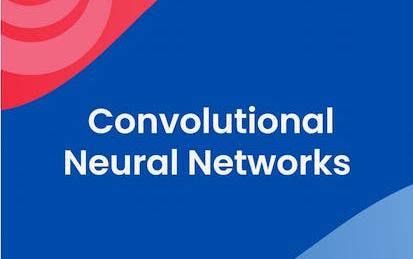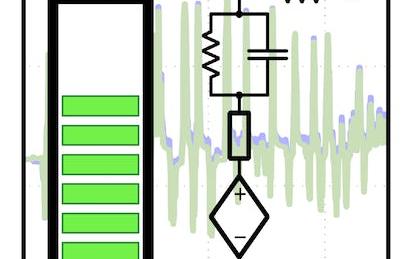

Our Courses

Introduction to Self-Driving Cars
Welcome to Introduction to Self-Driving Cars, the first course in University of Toronto’s Self-Driving Cars Specialization. This course will introduce you to the terminology, design considerations and safety assessment of self-driving cars.
-
Course by

-
 Self Paced
Self Paced
-
 35 hours
35 hours
-
 English
English

Robotics: Aerial Robotics
How can we create agile micro aerial vehicles that are able to operate autonomously in cluttered indoor and outdoor environments? You will gain an introduction to the mechanics of flight and the design of quadrotor flying robots and will be able to develop dynamic models, derive controllers, and synthesize planners for operating in three dimensional environments. You will be exposed to the challenges of using noisy sensors for localization and maneuvering in complex, three-dimensional environments.
-
Course by

-
 Self Paced
Self Paced
-
 18 hours
18 hours
-
 English
English
VLSI CAD Part I: Logic
A modern VLSI chip has a zillion parts -- logic, control, memory, interconnect, etc. How do we design these complex chips? Answer: CAD software tools. Learn how to build thesA modern VLSI chip is a remarkably complex beast: billions of transistors, millions of logic gates deployed for computation and control, big blocks of memory, embedded blocks of pre-designed functions designed by third parties (called “intellectual property” or IP blocks). How do people manage to design these complicated chips?
-
Course by

-
 Self Paced
Self Paced
-
 23 hours
23 hours
-
 English
English

Natural Language Processing with Attention Models
In Course 4 of the Natural Language Processing Specialization, you will: a) Translate complete English sentences into Portuguese using an encoder-decoder attention model, b) Build a Transformer model to summarize text, c) Use T5 and BERT models to perform question-answering. By the end of this Specialization, you will have designed NLP applications that perform question-answering and sentiment analysis, and created tools to translate languages and summarize text! Learners should have a working knowledge of machine learning, intermediate Python including experience with a deep learning fra
-
Course by

-
 Self Paced
Self Paced
-
 35 hours
35 hours
-
 English
English

Introduction to Statistics & Data Analysis in Public Health
Welcome to Introduction to Statistics & Data Analysis in Public Health! This course will teach you the core building blocks of statistical analysis - types of variables, common distributions, hypothesis testing - but, more than that, it will enable you to take a data set you've never seen before, describe its keys features, get to know its strengths and quirks, run some vital basic analyses and then formulate and test hypotheses based on means and proportions. You'll then have a solid grounding to move on to more sophisticated analysis and take the other courses in the series.
-
Course by

-
 Self Paced
Self Paced
-
 16 hours
16 hours
-
 English
English

State Estimation and Localization for Self-Driving Cars
Welcome to State Estimation and Localization for Self-Driving Cars, the second course in University of Toronto’s Self-Driving Cars Specialization. We recommend you take the first course in the Specialization prior to taking this course. This course will introduce you to the different sensors and how we can use them for state estimation and localization in a self-driving car.
-
Course by

-
 Self Paced
Self Paced
-
 27 hours
27 hours
-
 English
English

Bayesian Statistics: Mixture Models
Bayesian Statistics: Mixture Models introduces you to an important class of statistical models. The course is organized in five modules, each of which contains lecture videos, short quizzes, background reading, discussion prompts, and one or more peer-reviewed assignments. Statistics is best learned by doing it, not just watching a video, so the course is structured to help you learn through application. Some exercises require the use of R, a freely-available statistical software package.
-
Course by

-
 Self Paced
Self Paced
-
 22 hours
22 hours
-
 English
English
Model Thinking
We live in a complex world with diverse people, firms, and governments whose behaviors aggregate to produce novel, unexpected phenomena. We see political uprisings, market crashes, and a never ending array of social trends. How do we make sense of it? Models. Evidence shows that people who think with models consistently outperform those who don't. And, moreover people who think with lots of models outperform people who use only one. Why do models make us better thinkers?
-
Course by

-
 Self Paced
Self Paced
-
 27 hours
27 hours
-
 English
English

Single Variable Calculus
Calculus is one of the grandest achievements of human thought, explaining everything from planetary orbits to the optimal size of a city to the periodicity of a heartbeat. This brisk course covers the core ideas of single-variable Calculus with emphases on conceptual understanding and applications. The course is ideal for students beginning in the engineering, physical, and social sciences.
-
Course by

-
 Self Paced
Self Paced
-
 14 hours
14 hours
-
 English
English

Vector Calculus for Engineers
This course covers both the theoretical foundations and practical applications of Vector Calculus. During the first week, students will learn about scalar and vector fields. In the second week, they will differentiate fields. The third week focuses on multidimensional integration and curvilinear coordinate systems. Line and surface integrals are covered in the fourth week, while the fifth week explores the fundamental theorems of vector calculus, including the gradient theorem, the divergence theorem, and Stokes' theorem.
-
Course by

-
 Self Paced
Self Paced
-
 30 hours
30 hours
-
 English
English

Exploratory Data Analysis for Machine Learning
This first course in the IBM Machine Learning Professional Certificate introduces you to Machine Learning and the content of the professional certificate. In this course you will realize the importance of good, quality data.
-
Course by

-
 Self Paced
Self Paced
-
 14 hours
14 hours
-
 English
English

Introduction to Calculus
The focus and themes of the Introduction to Calculus course address the most important foundations for applications of mathematics in science, engineering and commerce. The course emphasises the key ideas and historical motivation for calculus, while at the same time striking a balance between theory and application, leading to a mastery of key threshold concepts in foundational mathematics.
-
Course by

-
 Self Paced
Self Paced
-
 59 hours
59 hours
-
 English
English

Mathematics for Machine Learning: Multivariate Calculus
This course offers a brief introduction to the multivariate calculus required to build many common machine learning techniques. We start at the very beginning with a refresher on the “rise over run” formulation of a slope, before converting this to the formal definition of the gradient of a function. We then start to build up a set of tools for making calculus easier and faster. Next, we learn how to calculate vectors that point up hill on multidimensional surfaces and even put this into action using an interactive game.
-
Course by

-
 Self Paced
Self Paced
-
 18 hours
18 hours
-
 English
English

Pricing Options with Mathematical Models
This is an introductory course on options and other financial derivatives, and their applications to risk management. We will start with defining derivatives and options, continue with discrete-time, binomial tree models, and then develop continuous-time, Brownian Motion models. A basic introduction to Stochastic, Ito Calculus will be given. The benchmark model will be the Black-Scholes-Merton pricing model, but we will also discuss more general models, such as stochastic volatility models.
-
Course by

-
 Self Paced
Self Paced
-
 69 hours
69 hours
-
 English
English

Matrix Algebra for Engineers
This course is all about matrices, and concisely covers the linear algebra that an engineer should know. The mathematics in this course is presented at the level of an advanced high school student, but it is recommended that students take this course after completing a university-level single variable calculus course. There are no derivatives or integrals involved, but students are expected to have a basic level of mathematical maturity.
-
Course by

-
 Self Paced
Self Paced
-
 20 hours
20 hours
-
 English
English

The Finite Element Method for Problems in Physics
This course is an introduction to the finite element method as applicable to a range of problems in physics and engineering sciences. The treatment is mathematical, but only for the purpose of clarifying the formulation. The emphasis is on coding up the formulations in a modern, open-source environment that can be expanded to other applications, subsequently. The course includes about 45 hours of lectures covering the material I normally teach in an introductory graduate class at University of Michigan.
-
Course by

-
 Self Paced
Self Paced
-
 62 hours
62 hours
-
 English
English

Calculus Applied!
Apply tools of single-variable calculus to create and analyze mathematical models used by real practitioners in social, life, and physical sciences.
-
Course by

-
 Self Paced
Self Paced
-
 20
20
-
 English
English

A-Level Further Mathematics for Year 12 - Course 2: 3 x 3 Matrices, Mathematical Induction, Calculus Methods and Applications, Maclaurin Series, Complex Numbers and Polar Coordinates
Develop your thinking skills, fluency and confidence in A-level further maths and prepare for undergraduate STEM degrees.
-
Course by

-
 Self Paced
Self Paced
-
 10
10
-
 English
English

Calculus II: Multivariable Functions
This course provides an overview of bachelor-level calculus of multivariable functions (Calculus II). You will review many basic concepts related to differentiation and integration of multivariable functions.
-
Course by

-
 Self Paced
Self Paced
-
 27
27
-
 English
English

Calculus I: From Functions to Differential Equations
Refresh and review your bachelor-level calculus. This course covers all the various differentiation and integration techniques and guides you through several important methods for solving differential equations.
-
Course by

-
 Self Paced
Self Paced
-
 21
21
-
 English
English

Pre-University Calculus
Prepare for introductory calculus courses by reviewing functions, equations, differentiation, integration and analytic geometry.
-
Course by

-
 Self Paced
Self Paced
-
 49
49
-
 English
English

MathTrackX: Integral Calculus
Discover concepts and techniques relating to integration and how they can be applied to solve real world problems.
-
Course by

-
 Self Paced
Self Paced
-
 18
18
-
 English
English

MathTrackX: Differential Calculus
Discover concepts and techniques relating to differentiation and how they can be applied to solve real world problems.
-
Course by

-
 Self Paced
Self Paced
-
 15
15
-
 English
English

Doğrusal Cebir I: Uzaylar ve İşlemciler / Linear Algebra I: Spaces and Operators
Bu ders doğrusal cebir ikili dizinin birincisidir. Doğrusal uzaylar kavramı, doğrusal işlemciler, matris gösterimleri ve denklem sistemlerinin hesaplanabilmesi için temel araçlar vb. konuları içermektedir.
-
Course by

-
 Self Paced
Self Paced
-
 Turkish
Turkish

Mathematics 1 Part 2: Integral calculus, algebra, and applications
The second in a series of two courses which help you to master mathematics fundamentals and build your quantitative skillset for progression in high-growth careers, or to use as step towards further study at undergraduate level.
-
Course by

-
 Self Paced
Self Paced
-
 English
English



